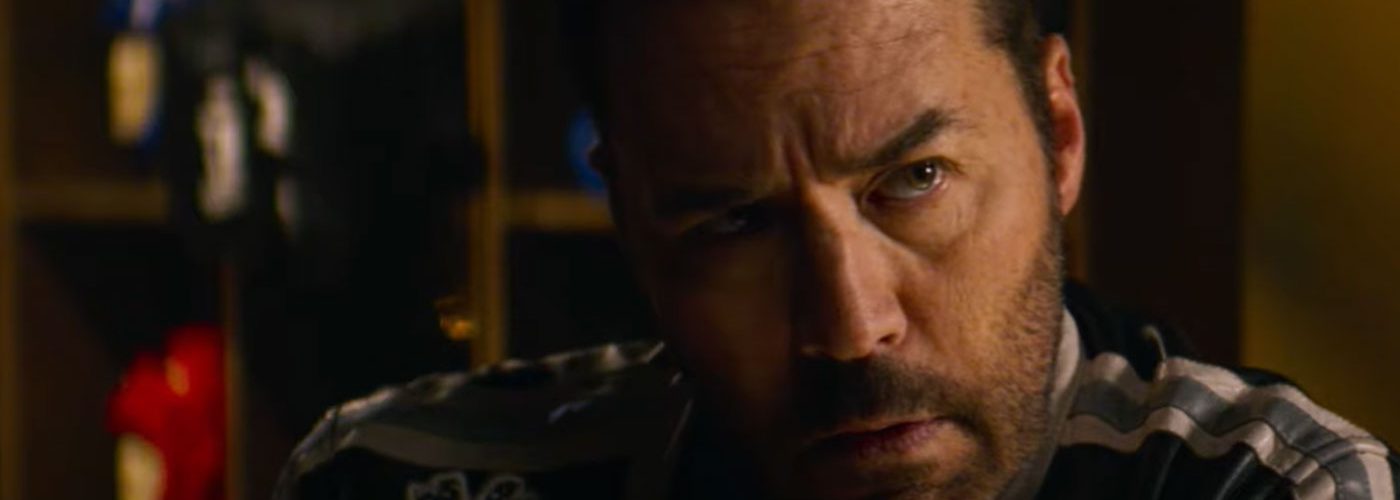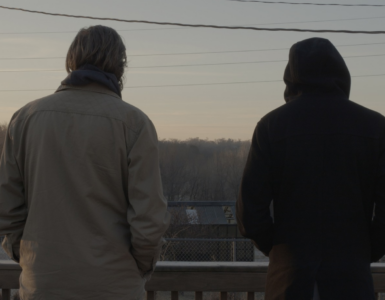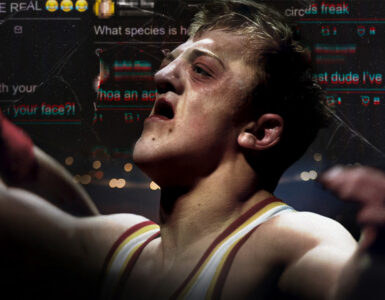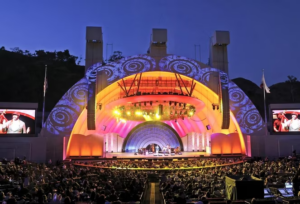American Night, the debut narrative feature by Italian filmmaker Alessio Della Valle, is intended to be a sprawling gangster epic a la Scorsese or Tarantino, but it falls short due to its repetitiveness, an overlong running time and a story that’s frankly not all that interesting. But there’s a lot of art and art references, which at least stays true to the themes Della Valle wanted to address. He even includes a sex scene between two of the leads pouring paint over each other.
The film’s company imported a trio of American and English actors who’ve been notable as bad boys in the past but must have hoped to stimulate their careers in an “important” film — Emile Hirsch, Jonathan Rhys Meyers and Jeremy Piven. Talk about working for a paycheck. I wish I could see them being handed their scripts to play these characters. As they looked at the dialogue, I’m sure they must have said, “Oh, yeah. I can do this” while rolling their eyes.
Hirsch (looking and acting like a young Harvey Keitel here) is Michael Rubino, a newly-anointed mob boss who has an affinity for art — both collecting it and making it. He splatters his canvases with paint, Jackson Pollock style, and then shoots them full of bullets to remind us that he’s gangster. His late father had sold the famous Warhol portrait of “Pink Marilyn,” and he desperately wants to get it back.
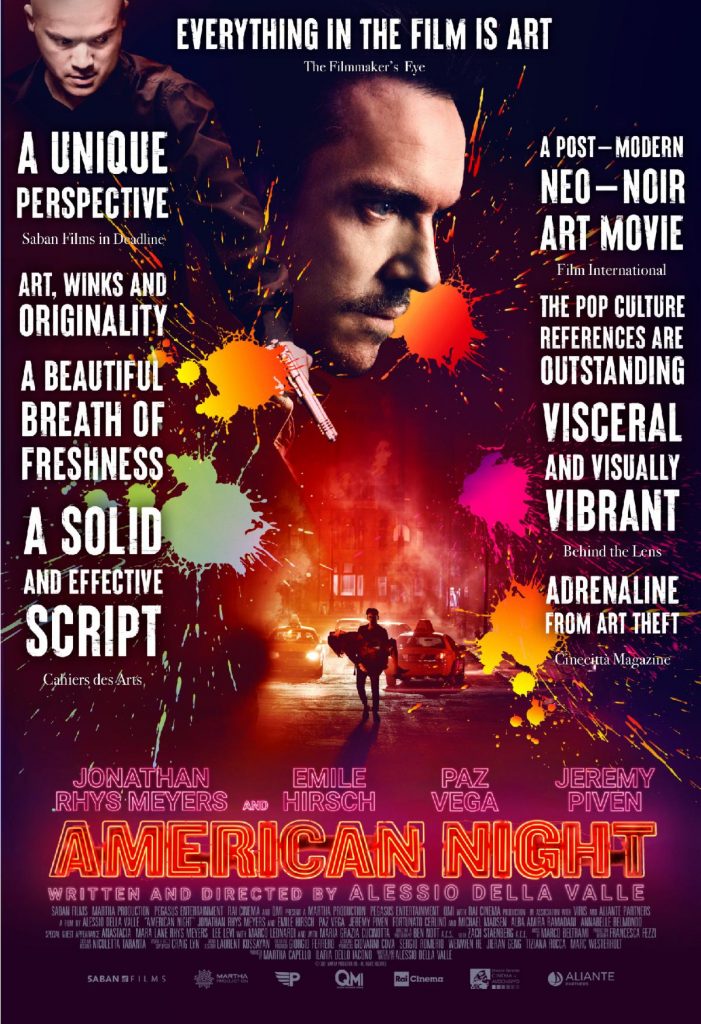
Meyers is John Kaplan, an art critic/forger who is desperate to open his own gallery with the help of his girlfriend Sarah (Paz Vega), but she is suspicious of his motives. Piven is Vincent, a sad-sack stuntman who is unwittingly carrying the package in which the Warhol painting is hidden. Their worlds are all destined to collide in the jumpy, bumpy script.
And because everyone knows that the New York art world is totally mobbed up, it doesn’t take long for all sorts of unsavory types to show up. Let the gunfire proceed.
Divided into three acts, each announced by the visual of a bullet-ridden window of an Edward Hopper-style diner, American Night attempts to delve into the backstories of each of these characters in an effort to make them humanly recognizable. But there’s so much posing and risible dialogue that it all becomes pretty silly long before it reaches its overlong conclusion.
Combine this with flashbacks (and flashbacks within flashbacks), and the viewer is left wondering what year it is. It’s one of those films that features sweaty close-ups of characters spouting Della Valle’s overdramatic words to drive the narrative forward, but instead it just lurches. At least Hirsch seems to be in on the joke here with a performance that veers between understated and hilariously maniacal.
Set in New York but shot in Bulgaria, American Night is really first-rate from a production standpoint, which is really such a shame since the story is a big “Huh?”. Art director Arta Tozzi’s studio-bound, color-saturated sets look great, lovingly captured by Ben Nott’s camera. Marco Beltrami’s music also adds nicely to the dark mood.
Sadly, after two long acts of pointless backstory and betrayal, the film devolves into a classic shoot-up with nobody to root for, since the characters have been so clumsily and confusingly developed. Della Valle seems more interested in style than substance. As any studio head from Hollywood’s golden age would tell you — “You always gotta have a story!”
American Night will be available for streaming on Hulu starting Jan. 22. It’s available now on Amazon.


